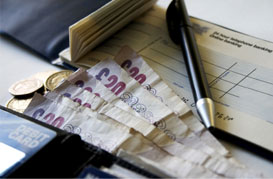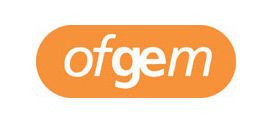
16
Oct
Oct
Pirates & Energy Companies
Posted by (0) Comment

The lawlessness and lack of Government commitment has allowed pirates to flourish and regularly hijack sensible businesses already battling against the downturn – and I don’t mean off the Somalian coast. Not unreasonably many businesses today can scarcely comprehend the disingenuous and underhand behaviour of the UK’s Energy Companies. Against a background of wholesale energy costs much lower than the peaks of last year, do we see these reduced costs passed onto businesses? No.
READ MORE ABOUT THOSE DASTARDLY PIRATES
Category : Energy Companies | Energy Prices | Legislation
- Bookmark :
- Digg
- del.icio.us
- Stumbleupon
- Redit it
22
Sep
Sep
 In an effort to assist and, where possible, protect small businesses and vunerable consumers paying increasing energy costs, Ofgem have imposed a set of guidelines for energy suppliers. The Ofgem press release is attached below but a brief summary of these changes are as follows:
In an effort to assist and, where possible, protect small businesses and vunerable consumers paying increasing energy costs, Ofgem have imposed a set of guidelines for energy suppliers. The Ofgem press release is attached below but a brief summary of these changes are as follows:
1. New requirements on written estimates following visits from face-to-face salespeople will come into force on 18 January 2010. Essentially, this would put an end to Contracts being signed that don’t match what was ‘promised’.
2. Doubling the threshold of debt a customer can carry and still switch supplier to £200 will come into force on 18 January 2010. This reduces the practical obstacle that has delayed many clients in the transfer process.
3. Further clarity in printed billing information [via PDF or post] from suppliers and the production of annual statements to customers if these are not already in existance from July 2010. This provides improved billing management.
4. Requirement for the six big energy companies to show more openess regarding their margins from the business community in these difficult financial times. This should enable businesses to see to what extent they are being exploited within the market.
Ofgem Assistance for SME and Consumers Press Release PDF
Category : Energy Companies | Legislation | Payment
- Bookmark :
- Digg
- del.icio.us
- Stumbleupon
- Redit it
23
Jun
Jun
Support for Solar
Posted by (0) Comment
 Whilst there seems to be an almost hysterical hype surrounding supposed alternative or green energy resources, in 2010 the UK government will be introducing a Feed-In Tariff to “help promote solar power and reduce carbon dioxide emissions” which on the face of it seems to provide genuine incentive for UK businesses to invest in solar energy with both financial and environmental benefits.
Whilst there seems to be an almost hysterical hype surrounding supposed alternative or green energy resources, in 2010 the UK government will be introducing a Feed-In Tariff to “help promote solar power and reduce carbon dioxide emissions” which on the face of it seems to provide genuine incentive for UK businesses to invest in solar energy with both financial and environmental benefits.
A Feed-in Tariff (FIT) provides a long-term financial incentive for people to invest in renewable energy. Under a FIT system electricity companies are obligated by governments to buy renewable electricity at above market rates.
The Feed-in Tariff will help reduce global warming, boost UK clean-tech jobs and reward people for installing solar power.
It is important the Feed-in Tariff is set at the correct rate. If it’s too low the potential for a massive increase in the UKs solar energy could be lost, and we could be left behind the rest of Europe.
We Support Solar website
Find out more about this by visiting the We Support Solar website and you can show your support for solar energy and the potential uses for business and domestic buildings by registering your interest in this scheme.
Category : Alternatives | Energy Production | Legislation
- Bookmark :
- Digg
- del.icio.us
- Stumbleupon
- Redit it
10
Jun
Jun
 Are you using a domestic energy profile for your business? If so, there are considerable tax and insurance implications for your business. This article examines why these profiles exist, how to find out if you are using the wrong profile, what to do to change this and how a change would benefit the security of your future contracts.
Are you using a domestic energy profile for your business? If so, there are considerable tax and insurance implications for your business. This article examines why these profiles exist, how to find out if you are using the wrong profile, what to do to change this and how a change would benefit the security of your future contracts.
Background
The original intention of all profiles was to structure pricing and consumption patterns to match the type of electricity usage. Simplistically 01 and 02 profile meters are intended for domestic properties whereas the commercial market starts off with 03 and 04 profiles, which are at the smaller end of business consumers and are typically ‘billed’ quarterly. 05 to 08 profiles inclusive are larger business consumers, billed monthly. There are still particular meters which might have upto 7 different rates based on time of day.The final profile the 00 or ‘half-hourly’ (the meter sends out via a radio signal, a reading every half hour). These are typically high use businesses. continue
Category : Energy Prices | Payment
- Bookmark :
- Digg
- del.icio.us
- Stumbleupon
- Redit it
4
Jun
Jun
To provide you with an overview of how the gas and electricity industry works, we have done some research and found this very media friendly video produced around 2 years ago [so a little out of date but the basic facts remain the same]. It explains the way the gas and electricity network works in relation to consumers and suppliers. Worth a viewing to get an overview of the subject matter.
Whilst liberalisation of the market is an imperfect method of improving the situation for both Business and Domestic customers, this along with some legislative requirements on the part of the government has shown some improvements. Some of the regulatory bodies discussed in the film were from a Business Energy Consumer fairly toothless in terms of addressing some of the hardline tactics of most suppliers. So once again Businesses need to be smart, manage their energy carefully otherwise it will cost!
continue
Category : Energy Companies | Energy Production
- Bookmark :
- Digg
- del.icio.us
- Stumbleupon
- Redit it
29
May
May
Reduce Overlapping Billing
Posted by (0) Comment

Double billing can occur when changing energy supplier and involves both the new and old supplier charging for energy usage in the overlap between the end of one contract and the beginning of another. In short, the user is paying for the same energy twice.
One of the major causes of this are incorrectly processed meter readings where the new supplier makes an estimate of usage but the old supplier, for whatever reason, does not receive them or does not process them correctly. This can lead to a final account figure missing on the old supplier’s system and therefore the old supplier will keep billing the customer until a final official reading has been logged in the system from the new supplier.
Category : Administration | Payment
- Bookmark :
- Digg
- del.icio.us
- Stumbleupon
- Redit it
20
May
May
Direct Debit vs Cash Cheque
Posted by (0) Comment

This article discusses the two forms of payment you are likely to encounter when requested to pay for your energy – direct debit and cash cheque. It is worth noting the difference between the two processes and the additional costs incurred should you choose a cash cheque which increasingly less acceptable to suppliers and in some cases simply not an option.
Definitions
Direct Debit is the process of electronic payment from one bank account to another – this involves an agreement that the energy supplier has the authority to remove the appropriate billed amount from the client account. This transaction is different to a standing order because Direct Debit allows payments of different values. On the other hand, Cash Cheque is a term that is applied to the means of payment by which money is transfered to another bank account via cheque, cash or manual electronic payment – the onus is upon the client to pay the energy company as the energy company does not have the authority to automatically remove the appropriate credit.
Category : Administration | Payment
- Bookmark :
- Digg
- del.icio.us
- Stumbleupon
- Redit it





